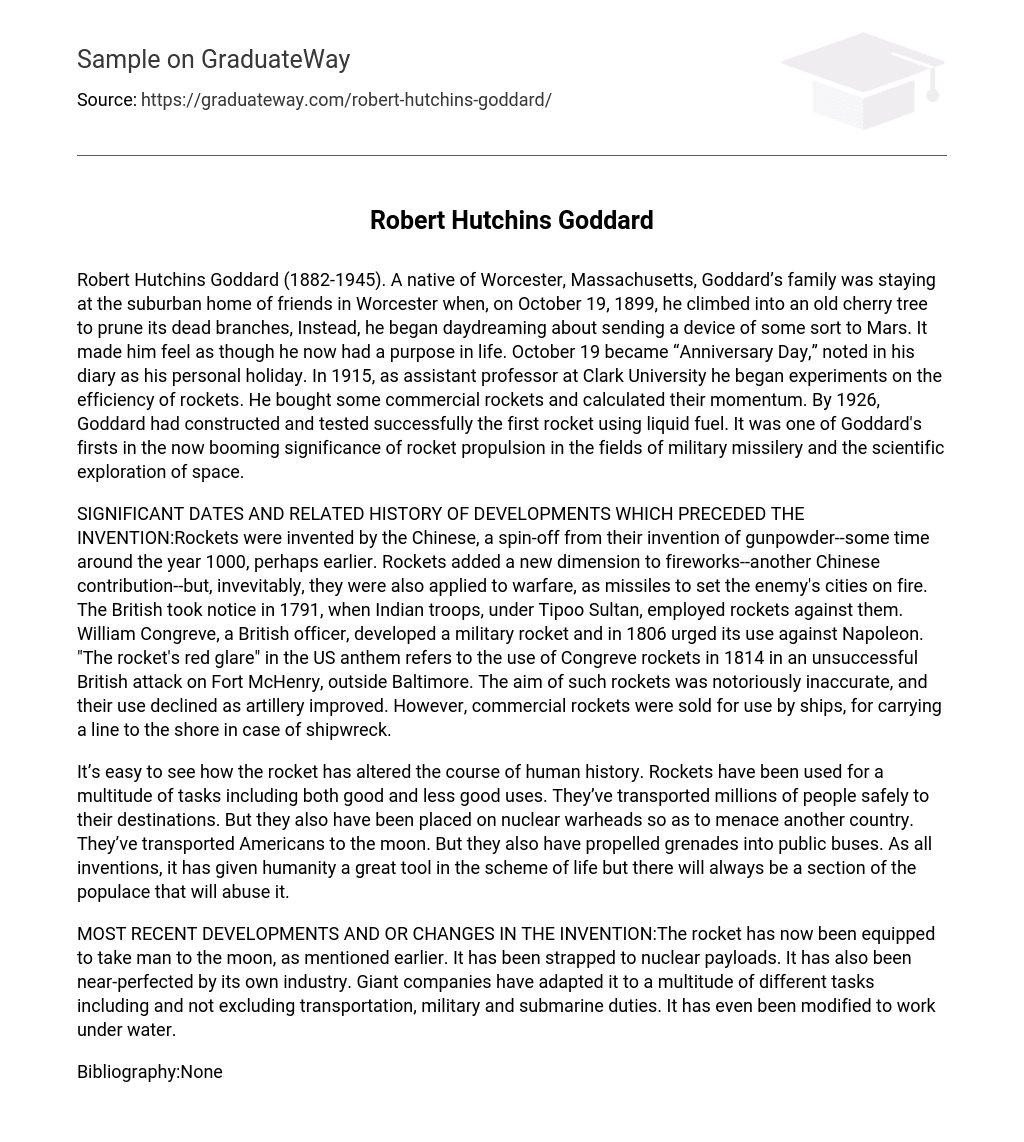Robert Hutchins Goddard (1882-1945) was born in Worcester, Massachusetts. One day in 1899, while visiting his family’s friends in Worcester, he found himself trimming dead branches of an old cherry tree. However, his mind wandered and he started fantasizing about sending a device to Mars. This experience gave him a sense of purpose and he designated October 19 as his personal holiday, calling it “Anniversary Day” in his diary.
At Clark University in 1915, an assistant professor named Goddard conducted experiments on rocket efficiency by purchasing and analyzing commercial rockets to determine their momentum. By 1926, Goddard had achieved a significant milestone in the field of rocket propulsion by successfully designing and testing the first liquid fuel-powered rocket. This breakthrough had major implications for military missiles and space exploration.
SIGNIFICANT DATES AND RELATED HISTORY OF DEVELOPMENTS PRIOR TO THE INVENTION
The Chinese developed rockets after inventing gunpowder around 1000 AD or earlier. Rockets were an expansion of fireworks, which the Chinese also introduced. However, these rockets eventually became weapons in warfare, particularly as missiles to set enemy cities on fire. In 1791, the British realized the potential of rockets when Indian soldiers, under Tipoo Sultan’s leadership, employed them against them. British officer William Congreve subsequently designed a military rocket and advocated its utilization against Napoleon in 1806.
The phrase “The rocket’s red glare” in the US anthem refers to the unsuccessful British attack on Fort McHenry, outside Baltimore, in 1814. Congreve rockets were used during this attack but were known for their notorious inaccuracy. As artillery improved, the use of these rockets declined. Nevertheless, ships still purchased commercial rockets to be used in case of shipwreck, as they were capable of carrying a line to the shore.
Throughout history, rockets have had a significant impact on human society, serving multiple purposes with varying effects. On one hand, they have facilitated safe transportation of numerous individuals to different destinations. Conversely, they have also been utilized in nuclear warheads, posing threats to other nations. Additionally, rockets played a pivotal role in transporting Americans to the moon—an incredible achievement. However, they have also launched grenades into public buses, causing destruction and harm. Like any groundbreaking invention, rockets provide humanity with a powerful tool in life’s grand scheme but inevitably face misuse and exploitation by certain individuals within society.
Latest updates and modifications in the invention
The rocket, mentioned earlier, is ready to carry people to the moon. It has also been equipped with nuclear payloads and technological advancements have significantly enhanced its performance. Moreover, large companies have tailored it for different uses including transportation, military applications, and underwater operations. Surprisingly, it has even been modified for use under water.





